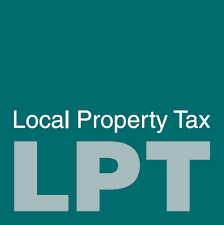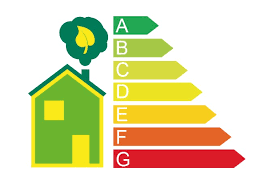Additional Considerations When Selling a Property in Ireland
Selling a property in Ireland involves navigating various legal, financial, and administrative considerations beyond simply finding a buyer. Understanding these additional aspects can significantly impact the process and ensure a smooth and compliant sale. Here are some crucial considerations for anyone selling property in Ireland.
Capital Gains Tax (CGT)
One significant consideration for property sellers in Ireland is Capital Gains Tax (CGT). If the property being sold is not your primary residence or has appreciated in value since purchase, you might be liable to pay CGT. Seeking advice from a tax professional is advisable to understand your tax obligations accurately. However, legal experts specializing in conveyancing can also offer guidance on this matter.
Capital gains that are exempt
Transfers of assets between spouses and civil partners are exempt from Capital Gains Tax. Transfers of assets between spouses and civil partners who are separated are exempt from Capital Gains Tax if they are made under a Separation Agreement or a court order. Read more about tax and separation or divorce. The transfer of a site from parent to child is exempt if it is to build the child’s principal private residence.

The land must be less than one acre and have a value of €500,000 or less. There is no Capital Gains Tax on assets that are passed on death. The assets are treated as if the person who died got the assets at the same value they have on the date of death. If a personal representative disposes of the assets, they are responsible for any gains between the date of the person’s death and the date of disposal.
Principal Private Residence Relief
You may be exempt from CGT If you dispose of a property you own that you lived in as your only or main residence. This includes land around the house of up to 1 acre. This relief may also apply if you dispose of a property that you provided for free to a widowed parent or incapacitated relative to use as their sole residence.
There are some restrictions to Principal Private Residence Relief, including that you can only claim the relief for:
- The part of the house that you used as your home
- The time you lived in the property, with some exceptions including for the last 12 months of ownership and absences for work or health reasons
- The value of the property as you currently use it, rather than for development potential
Click here for more information and examples of Principal Private Residence Relief and restrictions.
LPT – Local Property Tax
Before the completion of the sale you, or your solicitor, should:
- Obtain any relevant information and supporting documentation from the seller (property ID, valuation band or valuation, basis for their valuation and details of any exemption claimed).
- Check whether there is any outstanding tax, interest or penalties in relation to that property. Any unpaid tax will attract interest.
- Ensure there is no deferral on file.
- Ensure that all deferred liabilities are paid together with the interest due.
- Ensure that the Household Charge is fully paid.
- Consider whether the valuation declaration for the property is reasonable and honestly made. The buyer, or their solicitor, should address any concerns prior to the closing of the sale.

All sellers must obtain general clearance before completing the sale. Some must also obtain specific clearance from Revenue. The seller must provide this to the buyer. If this is not the first sale since 2013, the seller must provide details of any clearance they hold for the earlier sale.
You, as the buyer, must ensure that the seller provides you with copies of the appropriate clearance(s).
For more information, click here to see a blog we have written on LPT.
Energy Efficiency and Building Energy Rating (BER)
When buying a property in Ireland, a Building Energy Rating (BER) is mandatory for the buyer to attain. It is the responsibility of the seller to have before putting the property on the market. The BER assesses the overall energy efficiency of the property and provides potential buyers with crucial information.  A building energy rating or BER is an energy efficiency rating for your home. The better your homes BER, the lower your energy bills and the less carbon dioxide (CO2) your home will emit when you turn your heating on. The BER rating can also affect the potential value of your home. BER’s are measured on a scale of A to G.
A building energy rating or BER is an energy efficiency rating for your home. The better your homes BER, the lower your energy bills and the less carbon dioxide (CO2) your home will emit when you turn your heating on. The BER rating can also affect the potential value of your home. BER’s are measured on a scale of A to G.
- A-rated homes are the most energy efficient and tend to have lower energy bills.
- G-rated properties are the least energy efficient, often requiring significant amounts of energy to heat to a comfortable level which results in energy bills being on the higher side.
At Midlands Real Estate, we’ve partnered with a reputable BER (Building Energy Rating) assessor . As part of our service agreement when listing your property, Midlands Real Estate takes care of organising the BER assessment for you from start to finish.
Property Price Register
After a property sale concludes, the selling price is recorded in the Property Price Register.  The Register is compiled from data which is filed, for stamp duty purposes, with the Revenue Commissioners. The data is primarily filed electronically by persons doing the conveyancing of the property on behalf of the purchaser. For more information, click here to see a blog we have written on the Property Price Register.
The Register is compiled from data which is filed, for stamp duty purposes, with the Revenue Commissioners. The data is primarily filed electronically by persons doing the conveyancing of the property on behalf of the purchaser. For more information, click here to see a blog we have written on the Property Price Register.
Mortgage Repayment
 If there’s an existing mortgage on the property, sellers must repay it from the proceeds of the sale. Clearing off the mortgage, along with settling any associated fees (such as solicitor’s and estate agent’s fees), is crucial. The remaining balance from the sale proceeds constitutes the seller’s equity from the property sale. The mortgage type (fixed or variable) determines your ability to pay off the loan. With a variable rate, you can clear the loan anytime without bank refusal. However, on a fixed rate, you can pay in full or make a lump sum payment, but a penalty might apply as outlined in your loan offer. For specifics, contact your bank, as procedures vary. To know your remaining mortgage balance, request a redemption statement or final settlement letter from your bank. This document details your outstanding balance, accrued interest, and the daily interest rate for any additional payment calculations.
If there’s an existing mortgage on the property, sellers must repay it from the proceeds of the sale. Clearing off the mortgage, along with settling any associated fees (such as solicitor’s and estate agent’s fees), is crucial. The remaining balance from the sale proceeds constitutes the seller’s equity from the property sale. The mortgage type (fixed or variable) determines your ability to pay off the loan. With a variable rate, you can clear the loan anytime without bank refusal. However, on a fixed rate, you can pay in full or make a lump sum payment, but a penalty might apply as outlined in your loan offer. For specifics, contact your bank, as procedures vary. To know your remaining mortgage balance, request a redemption statement or final settlement letter from your bank. This document details your outstanding balance, accrued interest, and the daily interest rate for any additional payment calculations.
Conclusion
 In conclusion, selling a property in Ireland entails various complexities beyond finding a buyer. Being well-informed about the additional considerations mentioned above is crucial, and seeking professional guidance, such as Midlands Real Estate, can significantly facilitate a smoother and more successful property sale experience for sellers. If you’re thinking of selling and want Midlands Real Estate to act on your behalf, click here and get in touch today. Follow MRE on:
In conclusion, selling a property in Ireland entails various complexities beyond finding a buyer. Being well-informed about the additional considerations mentioned above is crucial, and seeking professional guidance, such as Midlands Real Estate, can significantly facilitate a smoother and more successful property sale experience for sellers. If you’re thinking of selling and want Midlands Real Estate to act on your behalf, click here and get in touch today. Follow MRE on:
Facebook Instagram TikTok Website
